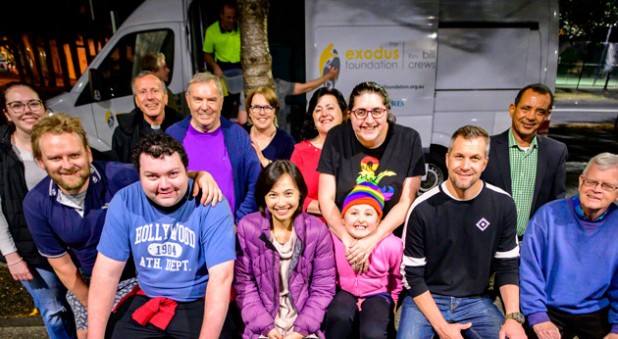Over the past couple of decades, I have been a vocal and somewhat annoying, agitator for cross-cultural and multicultural ministry in Sydney. I say “somewhat annoying” because on a couple of occasions I’ve heard words to the effect of “Here he goes again!” as I rise to speak at Synod or Standing Committee or elsewhere on the issue. I’ve been told I’m always “raving on” about this. Though this usually spurs me on all the more, today it gives me pause. I have been very critical. I think it’s time for some encouragement.
There is no doubt, in my opinion, that there has been a very great shift in the Diocese as a whole, and certainly in the Georges River Region about which I can speak with deeper knowledge when it comes to making our churches more “ethnic friendly”. We have a long, long way to go, but we are doing much better. How? (Not in any order of importance except the last)
1. We're doing more training
Over the years, I have certainly fielded more and more enquiries and requests to speak and train churches or leadership teams in cross-cultural and multi-cultural ministry. People have seen their parishes change, or noticed the change outside their walls but not inside, and they are addressing it. Churches are being intentional about starting or changing ministries to make them more accessible, more welcoming and more effective for those from different cultures.
2. We're celebrating our diversity
I am seeing more and more non-Anglo faces at the front of churches – praying, reading the bible, playing the guitar, leading services, preaching and on welcoming duty (the other front of church). This is so important so that people do not think we are mainly an Anglo church. I was nearly in tears during a service at Liverpool a couple of years ago when John 3:16 was read in about 15 languages. It was a special anniversary service, but still indicative of what is happens there.
3. We're starting to provide translation
I’m seeing a trickle of churches providing translation through hearing loops or even just someone quietly translating the service sitting in the back pews with others. This is can be tough to organise logistically, let alone finding a translator, but it is extremely loving and welcoming. A few years ago, I was so thrilled to hear how Yagoona church had a student minister’s wife fluent in Chinese and was able to translate the sermon for Chinese speakers sitting in the foyer, where they could look straight into the church (through glass) and hear God’s word in their heart language and not whispered. Creative and caring.
4. We're using the love language of most cultures: Food
I think the biggest and best improvement has been the food. To the ethnic person, nothing says “Nice to meet you, but don’t stay too long” better than a packet of Family Assorted Creams to feed 100 people and a half-filled Styrofoam cup of tea. This has been one of my pet peeves. Food is the love language for most cultures. Food says “I love you” or “I don’t love you”. Lots of food means you want people to stay. When people have food to eat, they stay. When people stay, they talk. When people talk, family happens.
Further, what you serve also says you want people to stay. It’s been just a delight to go from the weekly Iced Vovo to seeing baklava, spring rolls, cannoli and the like, thoughtfully bringing a welcoming familiarity to those we seek to reach. I think the “coffee culture” has helpfully come into play here as well. But many churches (pre-covid) really stepped up their morning teas and suppers and reaped the spiritual benefits. Ministers seem happier (and more rotund). I’d really love to see churches (especially in the Georges River Region) competing to see who has the best morning tea/supper…for the sake of the gospel, of course!
There are other encouragements I could mention like an Arabic service and an Assyrian service commencing pre-covid, refugee ministries and so forth. Not forgetting the amazing ministries of already established cross-cultural ministries in the Diocese. That would be another article. But for now, this somewhat annoying Bishop simply wanted to say, “Well done. Keep going! May I have another slice of baklava please?”






















